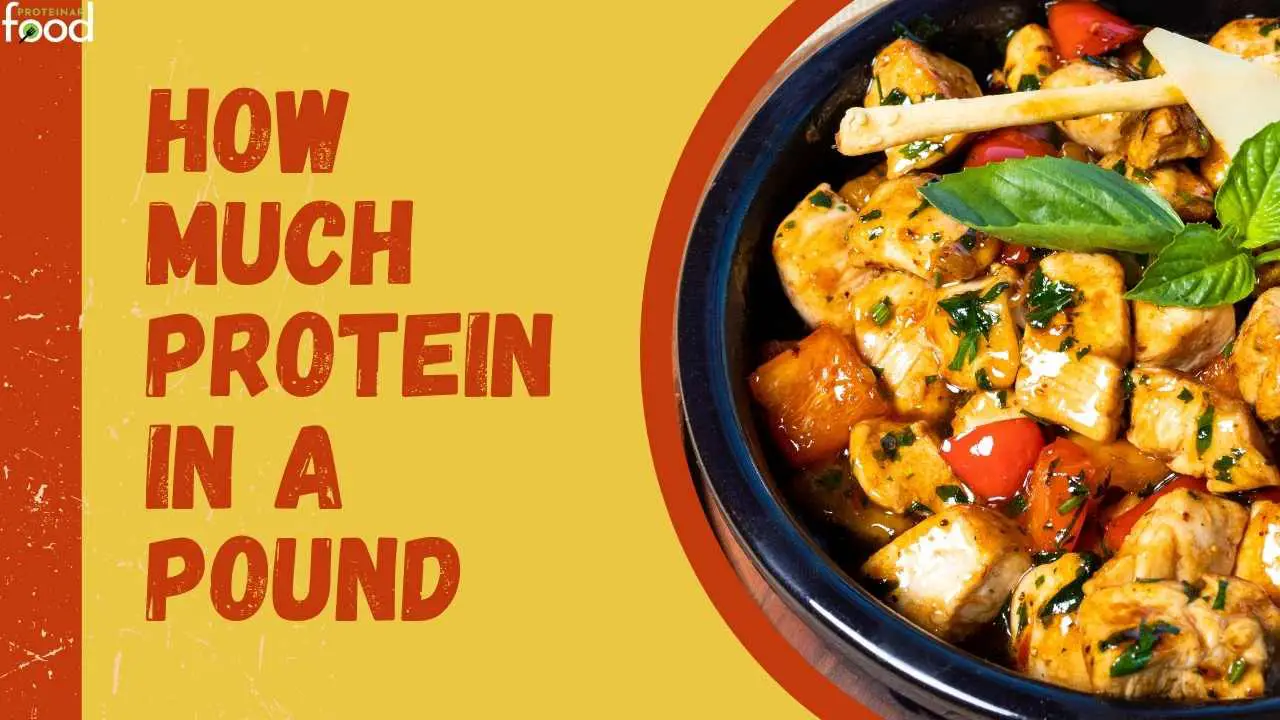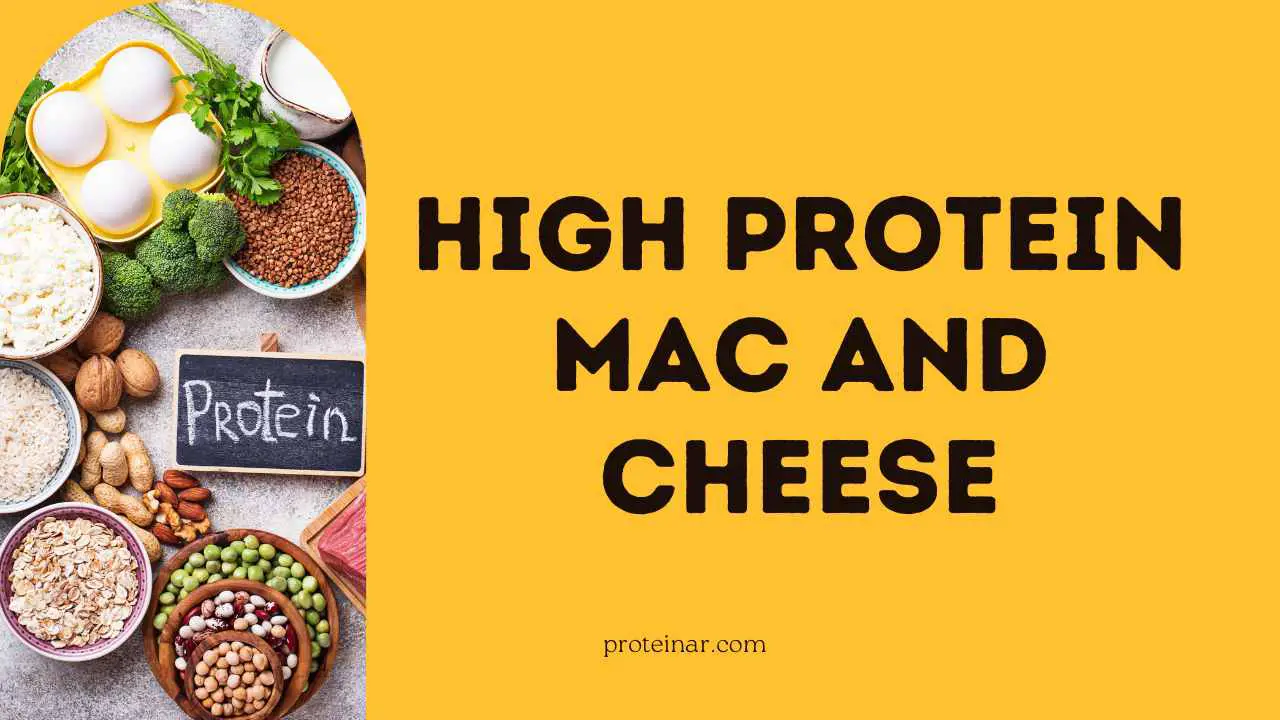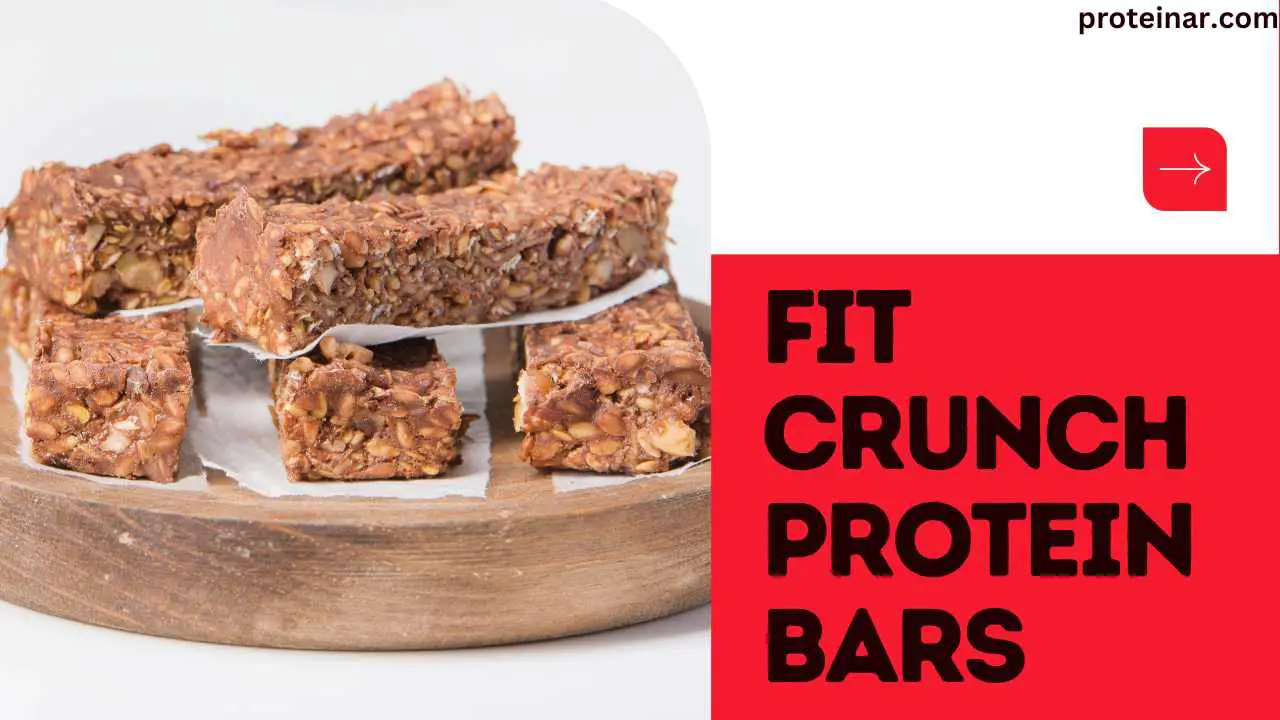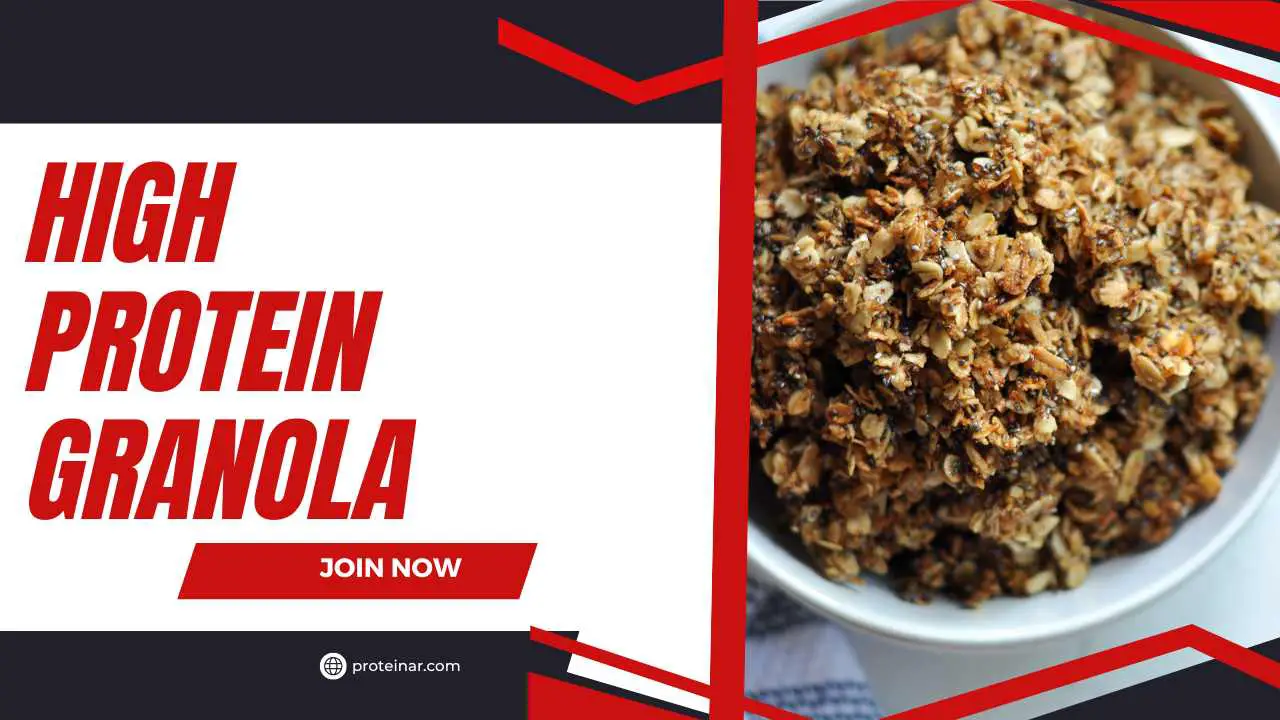High Impact Protein: Boosting Performance and Recovery

Elevate your fitness journey with high-impact protein products designed to maximize your performance and results.
I have been a fitness junkie and nutrition enthusiast for many years. I have taken time to investigate the effects of food on our physical performance and recovery.
Protein is one such substance that plays a central role in these processes. This guide will show you how high-impact proteins can change your fitness program. They speed up healing and make you unleash the power within.
Introduction to High-Impact Protein
High-impact proteins are those proteins that significantly affect muscle health and general body metabolism. These are not just ordinary types of protein; they contain vital amino acids necessary for muscle synthesis and healing.
So, what makes a protein “high impact”? Well, it is all about its bioavailability, amino acid profile, as well as its ability to promote muscle anabolism or the formation of muscle tissue.
The Role of Protein in Muscle Health
Muscles are made up of proteins which are composed of amino acids – building blocks. When we do physical exercises like jogging or lifting weights, our muscles get strained which causes micro-tears in their fibers. In order to repair these tears thus leading to the growth of muscles, protein comes into play.
Importance of High-Quality Protein
All proteins do not have similar contents. High-impact proteins are synonymous with high-quality ones. They usually contain all nine essential amino acids in adequate amounts.
The body cannot produce these kinds of amino acids, so they must be obtained from our diet. They are usually in animal products. But there could be plant-based options, too. If combined correctly, they would provide all the amino acids.
The Benefits of High Impact Protein for Performance
Athletes and active lifestyle proponents understand why they need high impact protein dietetics for the sporty days. Do not take quantity as important because quality matters.
Enhanced Muscle Mass and Strength
One key benefit is that it promotes muscle growth. It makes muscles bigger and stronger quickly. This happens compared to other low-grade proteins during resistance training.
Improved Endurance
High-quality protein is not only for those who want to bulk up but for endurance athletes as well. It maintains muscle mass and strength during prolonged physical activity. For instance, marathoners and cyclists need to sustain performance over an extended period of time.
Better Athletic Performance
It can be used for lifting weights, sprinting, or any exercise. High-impact protein can boost your athletic abilities. These proteins ensure there are enough building blocks for muscle growth. The body uses them to cope with sports or workouts.
How High Impact Protein Aids in Recovery
Credit: www.pexels.com
Post-workout recovery is just as important as the workout itself. This is where high-impact protein steps in.
Speeding Up Muscle Repair
Amino acids help muscles recover faster from intense workouts. They supply the materials needed to rebuild damaged tissues. This happens more quickly than when no supplement is taken at all.
Reducing Muscle Soreness
Delay onset muscular Soreness (DOMS) is one of the outcomes of intense exercise. High-impact protein can reduce this pain. It does so by improving the body’s ability to repair and build muscle tissue. This reduces the length and intensity of DOMS.
Expediting Recovery Time
If you recover faster, you will return to your training more quickly and with more energy. This is what high impact proteins do; they make muscle repairs easier, thus enabling you to get back to exercising in no time.
The Science Behind High Impact Protein and Its Effects on the Body
It is not just a matter of effectiveness when it comes to high-impact protein; it has something to do with science. Let us see why such protein works so well.
Protein Synthesis and Muscle Growth
Our bodies make new proteins all the time. This happens through processes like muscle protein synthesis. These amino acids are abundant in high-impact protein. It stimulates them to build muscles, leading to muscle growth and better body composition.
Hormonal Responses and Protein Intake
Insulin, growth hormone as well as other hormones play roles in how our bodies use proteins. High-impact proteins can affect these hormones. They improve the absorption and use of amino acids for recovery and growth.
Role Played By Leucine
Leucine is an important amino acid. It’s found in high-impact protein. It has a great influence on protein synthesis. It activates mTOR pathway, which is essential for muscle growth. A higher leucine content makes a given protein more anabolic towards muscles.
Different Types of High Impact Protein and Their Benefits
High-impact proteins come in different types depending on specific needs or dietary preferences.
Animal-Based Proteins
Whey, casein as well as egg-based animal proteins have full profiles of amino acids that are easy digested. Whey protein is known for its quick absorption. This makes it effective as a post-workout drink during recovery.
Plant-Based Proteins
Vegetarian and vegan people should not forget about plant-based proteins that are found in hemp, rice, and pea protein. Although it might not contain all the nine essential amino acids always mixing various kinds of plant proteins can form a complete profile.
Blended Proteins
A blended protein is one form of mixture that combines different sources like whey and casein to have an ongoing release of amino acids. This is helpful for those who want to continue repairing and growing muscles throughout the day or even at night time.
Incorporating High Impact Protein into Your Diet
To take advantage of high impact protein it is important to understand how you can incorporate it properly into your diet.
Timing Your Protein Intake
The timing matters when it comes to protein intake since if taken incorrectly then its effectiveness will be compromised. Consuming high impact proteins immediately after a workout would maximize muscle repair and growth; on other hand spreading out your protein intake throughout the day will keep having constant flow of amino acids in your muscles.
Balancing Protein with Other Nutrients
Other nutrients, such as carbohydrates and fats, should be balanced with proteins, although they are critical too. Carbohydrates rebuild glycogen stores, while fats provide essential fatty acids which can help balance hormones in the body.
Protein Intake for Different Goals
Your purposes determine how much of this compound you need for optimal performance. Someone interested in gaining muscles may require more than the average amount whereas endurance athletes would look for a balance between P+C during exercise day.
Tips for Athletes and Health-conscious Individuals
Fitness enthusiasts and those concerned about their health need to know the right time for protein intake so that they can squeeze the most out of their diets.
Protein Timing and Consumption Guidelines
Timing your high-impact protein intake around your workout calls for special attention. The combination of a quickly digested protein like whey before exercise, with casein slow-release consumed afterwards, can create a highly anabolic environment promoting muscle growth.
Supplement Options and Considerations
While it is always better to get nutrients from whole foods, protein supplements can provide an easy boost, especially when one finds it difficult to meet his/her protein needs in regular meals. Seek supplements that contain proteins from well-known sources like whey or casein or those made from plants.
High Impact Protein Supplements and Their Effectiveness
Where whole food sources may not be readily available, supplements may be used as a handy means of topping up one’s high impact protein intake.
Whey Protein Supplements
Among other kinds of high impact protein supplements are Whey Protein ones; they are preferred because of being easily digestible thus having quick absorption rate into the body.
Casein Protein Supplements
For example, Casein Protein-based products tend to take longer time to digestion thus making them ideal during fasting periods like nights, hence providing continuous release of amino acids for muscle repair.
Plant-Based Protein Supplements
On the other hand, plant-based proteins are alternatives suitable for those who have chosen not to consume animal products due to dietary restrictions. They can be just as effective as animal based proteins when combined correctly.
High Impact Protein Recipes and Meal Ideas
There are many ways you can incorporate high impact protein into your meals without compromising on taste or variety. Here are some ideas to keep your diet flavorful as well as functional.
Breakfast Options
Kickstart your day with breakfast full of proteins. For instance, you can blend a smoothie containing whey proteins, oats, and berries, which has all the three, proteins, carbohydrates and antioxidants. On a savory note, try an omelet with veggies plus a side of Greek yoghurt.
Lunch and Dinner Recipes
Think of something like grilled chicken or fish served with quinoa and steamed vegetables for lunch and dinner. For instance, vegetarians could choose lentil salad containing different kinds of mixed beans for a complete protein profile.
Snacks and Desserts
Sometimes when on the move high impact protein snacks can be very delicious but also nutritious. Cottage cheese with fruit toppings is such an example; others include protein bars; few almonds are quite ideal too especially when you are busy doing other things in parallel.
In case you have a sweet tooth still craving for more, you can try out Greek yogurt parfait or mug cake made from proteins which will help to meet your goals.
Tips for Maximizing the Benefits of High Impact Protein
Here are some tips that will help you get maximum results from high impact protein.
- Stay Hydrated
- Protein metabolism needs sufficient water intake thus, make sure to drink plenty throughout the day.
- Combine Resistance Training with Protein Intake
- For maximal muscle gains, combine resistance training along with high impact protein intake.
- Monitor Your Overall Diet
- Be careful not to consume excessive calories, as this may result in undesired weight gain over time.
Frequently Ask Question
This section answers questions regarding high impact proteins that people tend to ask most frequently.
How many grams of High Impact Protein do I need each day?
Your protein requirement depends on various factors such as your weight, how active you are and what your fitness goals are. Active people are often recommended to consume 1.2-2.2 grams of protein per kilogram of body weight.
Can I get enough high impact protein from food alone?
Some foods contain adequate levels of high impact proteins while others have supplements that can be used by people who require more proteins or lack time for preparing healthy meals.
Are there any risks associated with high impact protein intake?
High intakes of proteins over a sustained period of time may overload the kidneys. It is important to balance protein intake along with other nutrients and keep hydrated.
Conclusion
Once you start incorporating high impact proteins in your diet, it can change everything about your athletic performance and recovery.
By understanding the different categories of high impact proteins, integrating them intelligently into our daily lows, and equilibrating them together with other vital nutrients, we can optimize the built-in healing mechanism that supports muscle growth and development in the body. Nutrition is only one part – combine it with appropriate training and lifestyle habits to truly unleash your potential in yourself.






